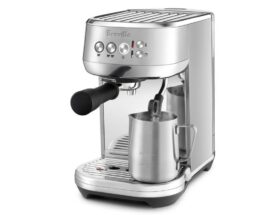
Coffee and Coughing: Finding the Best Coffee for Dry Cough
Coffee, a beloved beverage for many, holds a variety of effects on our bodies. When it comes to coughing, particularly dry cough, coffee has been found to offer some relief. The caffeine content in coffee acts as a bronchodilator, which means it helps widen the airways, reducing the urge to cough. However, it’s important to note that while coffee can temporarily alleviate cough symptoms, it does not address the underlying cause of the cough. Therefore, it’s crucial to seek medical advice if symptoms persist or worsen.
In this blog post, we will delve deeper into the impact of coffee on coughing, discuss how it affects the throat, and provide alternatives for coffee lovers who experience a dry cough. So, if you’re a coffee enthusiast dealing with a persistent cough, keep on reading to find out the best coffee options for you.
The Effects of Coffee on Coughing
Welcome to our blog post, where we will explore the effects of coffee on coughing, specifically dry cough. If you’re someone who loves coffee but is concerned about its impact on your throat health, this post is for you. We will discuss how coffee affects the throat, suggest coffee alternatives for those with a dry cough, and provide preparation tips for these alternatives so you can still enjoy a satisfying cup of coffee.
The Effects of Coffee on Coughing
For individuals experiencing a dry cough, consuming certain foods and beverages can aggravate the condition. Coffee, in particular, has been known to have both positive and negative effects on coughing. The caffeine in coffee acts as a bronchodilator, which means it may help open up the airways and provide temporary relief for coughing. However, coffee is also a diuretic, which can lead to dehydration and exacerbate throat irritation.\
Did you know that coffee can actually help to reduce coughing? It contains compounds that can soothe a dry cough and alleviate throat irritation. So, next time you have a pesky cough, grab a cup of your favorite brew and enjoy its soothing effects!
The acidity of coffee can irritate the throat and worsen the symptoms of a dry cough. The hot temperature of the beverage may also contribute to throat dryness and discomfort. As a result, some individuals may find that coffee worsens their coughing, while others may experience temporary relief.
Coffee Alternatives for Cough Sufferers
If you have a dry cough and want to enjoy a warm and flavorful beverage without aggravating your throat, there are several coffee alternatives to consider:
- Herbal teas: Chamomile, ginger, and peppermint teas are soothing options that can help relieve cough symptoms. These teas provide hydration and warmth without the acidity and caffeine found in coffee.
- Golden milk: This trendy beverage combines turmeric, ginger, and other spices with milk (or a non-dairy alternative) for a warming and anti-inflammatory drink.
- Warm lemon water: Lemon water can help soothe the throat, keep you hydrated, and provide a vitamin C boost. Simply squeeze fresh lemon juice into warm water and enjoy.
- Decaffeinated coffee: If you simply can’t live without the taste of coffee, opt for decaffeinated varieties. These still retain the flavor of coffee but without the stimulating effects of caffeine.
Coffee Preparation Tips for Cough Sufferers
If you decide to stick with coffee but want to minimize its potential negative effects on coughing, here are some tips to consider:
- Choose a lower acidity coffee roast, such as a medium or dark roast, as these tend to be less harsh on the throat.
- Allow your coffee to cool down slightly before taking a sip to avoid burning or irritating the throat.
- Add a splash of milk or a non-dairy alternative to help offset the acidity and make the coffee smoother.
- Stay hydrated by drinking plenty of water alongside your coffee to counteract any potential dehydration.
Remember, every individual’s response to coffee varies, so it’s important to listen to your body and make choices that best suit your needs and comfort level. If you find that coffee worsens your coughing, it may be best to explore the alternatives mentioned above.
Enjoying a cup of coffee doesn’t have to be off-limits if you have a dry cough. By understanding the effects of coffee on coughing and exploring suitable alternatives, you can still satisfy your coffee cravings while keeping your throat health in mind. Try out the suggestions above and find the best coffee option for you.
Finding the Best Coffee for Dry Cough
Understanding the Effects of Coffee on Coughing
To find the best coffee for dry cough, it’s important to understand how coffee affects coughing. Coffee acts as a natural bronchodilator, meaning it helps to open up the airways and ease cough symptoms. The caffeine in coffee can also provide temporary relief from coughing by stimulating the central nervous system.
Identifying Coffee Alternatives for Cough Sufferers
If you’re experiencing a dry cough and want to avoid coffee, there are several alternatives you can try:
- Herbal teas: Chamomile or peppermint tea can soothe the throat and provide relief from coughing.
- Ginger tea: Ginger has anti-inflammatory properties that can help reduce coughing and soothe the throat.
- Decaffeinated coffee: Opting for decaf coffee can minimize the potential negative effects of caffeine on coughing.
- Hot water with lemon and honey: This simple concoction can help soothe the throat and alleviate cough symptoms.
Preparing Coffee Alternatives
Here are some tips for preparing the coffee alternatives mentioned:
Herbal teas:
Boil water and steep the tea bag or loose tea leaves for about 5-7 minutes. Add honey or lemon as desired for added flavor and throat-soothing benefits.
Ginger tea:
Boil water and add freshly sliced ginger. Simmer for 10-15 minutes, then strain and serve. You can also add honey or lemon for taste.
Decaffeinated coffee:
Follow the same preparation steps as you would for regular coffee, but use decaffeinated coffee grounds or instant coffee. Remember to avoid adding any irritants like dairy or excessive sugar.
Hot water with lemon and honey:
Simply boil water and squeeze fresh lemon juice into a mug. Add honey to taste, stirring until it dissolves. Sip and enjoy the soothing effects.
Experimenting and Finding Your Preferred Alternative
Everyone’s taste buds and preferences are unique, so don’t be afraid to experiment with different coffee alternatives to find the one that works best for you. Try different combinations, adjust ingredient quantities, and explore new flavors to discover your preferred soothing drink.
Incorporating Healthy Habits
While coffee and its alternatives can provide temporary relief, it’s essential to address the underlying causes of your cough. Make sure to stay hydrated, get enough rest, and consider consulting a healthcare professional if your cough persists or worsens.
Now that you have a better understanding of coffee’s effects on coughing and some alternatives to try, you can still enjoy a satisfying cup of warm goodness while taking care of your throat health.
Wrap Up
Throughout this blog post, we have explored the impact of coffee on coughing, particularly dry cough. We have learned that while coffee can have some beneficial effects on throat health, it is not suitable for everyone, especially those with a dry cough. However, there are alternatives to coffee that can still provide a satisfying cup of brew.
We discussed various coffee alternatives such as herbal teas, warm water with lemon, and ginger turmeric drinks. These alternatives can help soothe the throat and provide relief from a dry cough. Remember to consult with a healthcare professional if you have any concerns about your cough or throat health.
If you have any questions or comments about coffee and coughing or if you have any other coffee-related topics you’d like us to cover, please feel free to leave a comment below. We love hearing from our readers and engaging in discussions about coffee and its effects.
For more information and resources on coffee, brewing methods, and coffee-related topics, be sure to visit our website Ten Coffees. Here are some additional articles you may find interesting:
- How to Make Vietnamese Coffee: The Strong & Bold Coffee
- How to Hario V60: The Ultimate Guide to Making Perfect Coffee
- How to Siphon Coffee: The Slow and Elegant Way to Brew a Perfect Cup
- How to Aeropress: The Ultimate Guide to Making Amazing Coffee at Home
We hope you found this blog post informative and helpful. Thank you for reading, and happy brewing!









